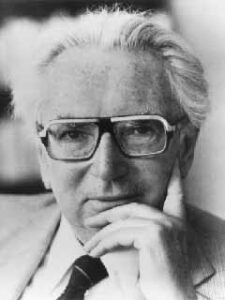“Between stimulus and response there is a space. In that space is our power to choose our response. In our response lies our growth and our freedom.”
This is a quote I live by. It’s often misattributed to Viktor E Frankl’s book, Man’s Search for Meaning. While it may not appear directly in the book, it reflects one of its core messages.
The book is often referred to as ‘new age’ popular psychology, and it’s important to mention that there are very legitimate concerns about Frankl, his life, and his work. Despite that, the book has been important to me throughout my life, and it’s messages (and the ones misattributed to it) impact my work as a coach. Frankl discusses his experiences as a Holocaust survivor and details how those experiences influenced his philosophy and theory about human behavior. One of his primary messages is that everything can be taken from a person except their ability to choose how to respond, even in the most horrific of circumstances.

I read Man’s Search for Meaning for the first time when I was 17 years old and a freshman in college. All I knew was that it was a highly-recommended book about psychology written by a psychiatrist who helped people think about what they find meaningful and important in life. I was a brand-new, eager psychology major thinking about what was meaningful in my own life, so it seemed like something I should read. I recall thinking that I knew I could read it fast because it was such a thin book.
When I started reading, I was stunned. It stopped me in my tracks. I remember thinking: “If he can hold himself accountable for choosing his attitude and quality of thought, I sure can.” It may sound a bit melodramatic, but it was truly a life-changing moment for me. Fast forward through many years of formal education and practice in both psychology and coaching, I am confident that if we learn the skills to regulate our emotion and behavior (finding the space between stimulus and response) and then make the choice of how to respond, rather than just react, we live healthier, more fulfilling, more peaceful, happier lives. Coaching can help with both.
I know for a variety of legitimate reasons, some people don’t have the capacity to choose. Others can, but it is incredibly challenging. I believe, however, that many of us can hold ourselves accountable to choose.
Here is the fun part! There are many ways you can create/find that ‘space’, and then you have lots of choices in your response. Maybe your boss is being passive aggressive and making you miserable. There are many things you could do. You could yell at them. You could say terrible things about them to your coworkers. If you’ve had these kinds of immediate reactions and experienced the not-so-ideal consequences, you might want to try coaching! We talk about the problem with a focus on what to do moving forward. We draw heavily on your strengths and past successes. We discuss what the literature shows to be effective. You reconnect with your strengths and health as you add a few new things to your skillset.
 Through this process, you realize that you can use strategies like deep breathing or a variety of cognitive behavioral techniques to create the space in response to your boss’s actions. You may have used these techniques successfully in the past, but it’s easy to forget all about that when you’re upset. As we talk your insight is likely to increase, and you may realize you need to better manage your stress and anxiety every day. Maybe you make a plan to walk every day. From that place of calm (which does not mean you are not upset, by the way, since you can be calm despite how you feel), you can now choose how to respond to your boss. Maybe talking with your boss is your next step, and you decide to do that with an HR representative there. Maybe you have tried everything, and you decide to search for a new job.
Through this process, you realize that you can use strategies like deep breathing or a variety of cognitive behavioral techniques to create the space in response to your boss’s actions. You may have used these techniques successfully in the past, but it’s easy to forget all about that when you’re upset. As we talk your insight is likely to increase, and you may realize you need to better manage your stress and anxiety every day. Maybe you make a plan to walk every day. From that place of calm (which does not mean you are not upset, by the way, since you can be calm despite how you feel), you can now choose how to respond to your boss. Maybe talking with your boss is your next step, and you decide to do that with an HR representative there. Maybe you have tried everything, and you decide to search for a new job.
Maybe your boss is wrong, and you’re right. You can’t change your boss, but you can change yourself. Who knows exactly how you will proceed. There are so many ways to create change in your own life. No one can do it for you. Ever. You can’t make someone change. Ever. If you seek help and you commit to taking active steps to grow and change, you can lead a happier life. Studies show it, and my many years of experience do too.
